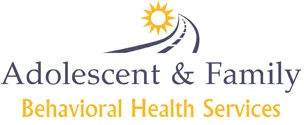Apologies can be powerful in healing relationships and bringing about reconciliation. However, a poor apology can make a bad situation worse. Giving an apology can provoke feelings of shame because of having to admit to self a mistake was made. It is easy to call it a “mistake” but sometimes, let’s just be real, it was not a mistake, it was a “bad choice.” Mistake or bad choice, doesn’t matter; either way it can be difficult to take responsibility for causing an injury. An apology means being vulnerable to the one who was hurt. The injured person experiences a shift in power balance in the relationship as a result of feeling put down, disregarded, or loss of credibility. Furthermore, the person can feel it easy for the injurer to simply disrupt a life and walk away without consequence. This feeling of imbalance can make it challenging for the wounded individual to forgive and can create a desire to get revenge. The good news is that people do apologize and apologies are accepted with relationships restored to a position of balance and healing. So how is an effective apology accomplished?
- Talk about the issue before apologizing. Be clear about the purpose and intention of the apology. Avoid a debate. Listen and understand the injured person’s perspective and expectation.
- Avoid the desire to rush in and explain your position as the injurer. Ever been accused of justifying or minimizing your actions? If so, this might be why. Save your explanation for another day. When the injured person is hurt and angry, it may be too tough to hear explanations.
- When you apologize, pointing out the wrongs of the other person is not effective. Sure, there may be a reason for you actions that caused hurt. Maybe you were hurt by the person you are apologizing to, and both of you need to apologize. However, pointing out faults or wrongs is not part of an apology.
- The purpose of “your” apology is to take responsibility for “your” actions. You may want forgiveness, and you may want the relationship restored, but there is no guarantee. Apologize because your behavior hurt someone.
- Forcing someone to apologize does not equal recognition of hurtful behaviors nor does it equal facing and taking responsibility.
- Expecting forgiveness and acceptance of an apology is simply reinjuring the injured person. Allow the individual to give forgiveness when ready. Expecting forgiveness can leave the individual feeling as if the issue is closed to never again be addressed without their consent.
- Please do offer to repair the damage (restitution/compensation). Let the injured person decide what will help them restore the power balance. The offender does not get to decide what the injured person needs or does not need.
It is not a weak person who apologizes; it is someone with strength who will stand up in the midst of pride or fear and willingly be vulnerable with the one who was hurt. For more on the topic of apologies and forgiveness read Peter Doherty, PhD and Patti-Anne Kay, MRE in Family Therapy; and Five Languages of Apologies by Gary Chapman and Jennifer Thomas.

